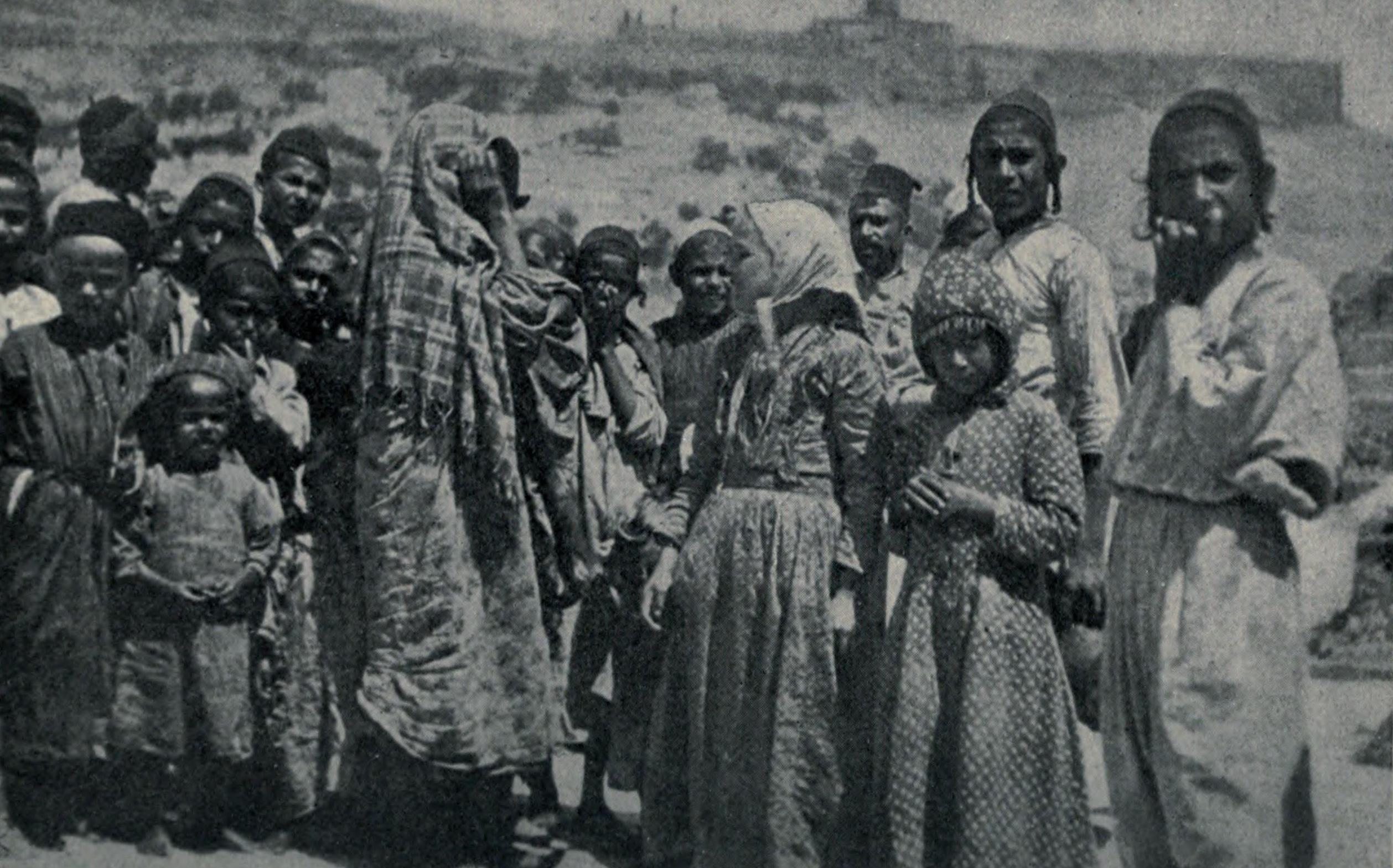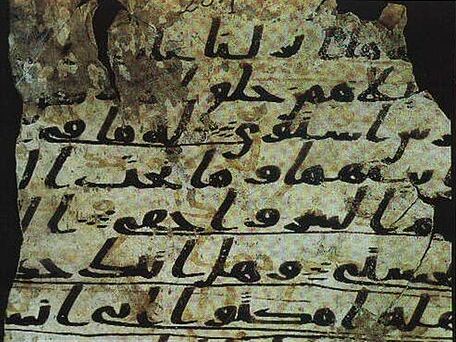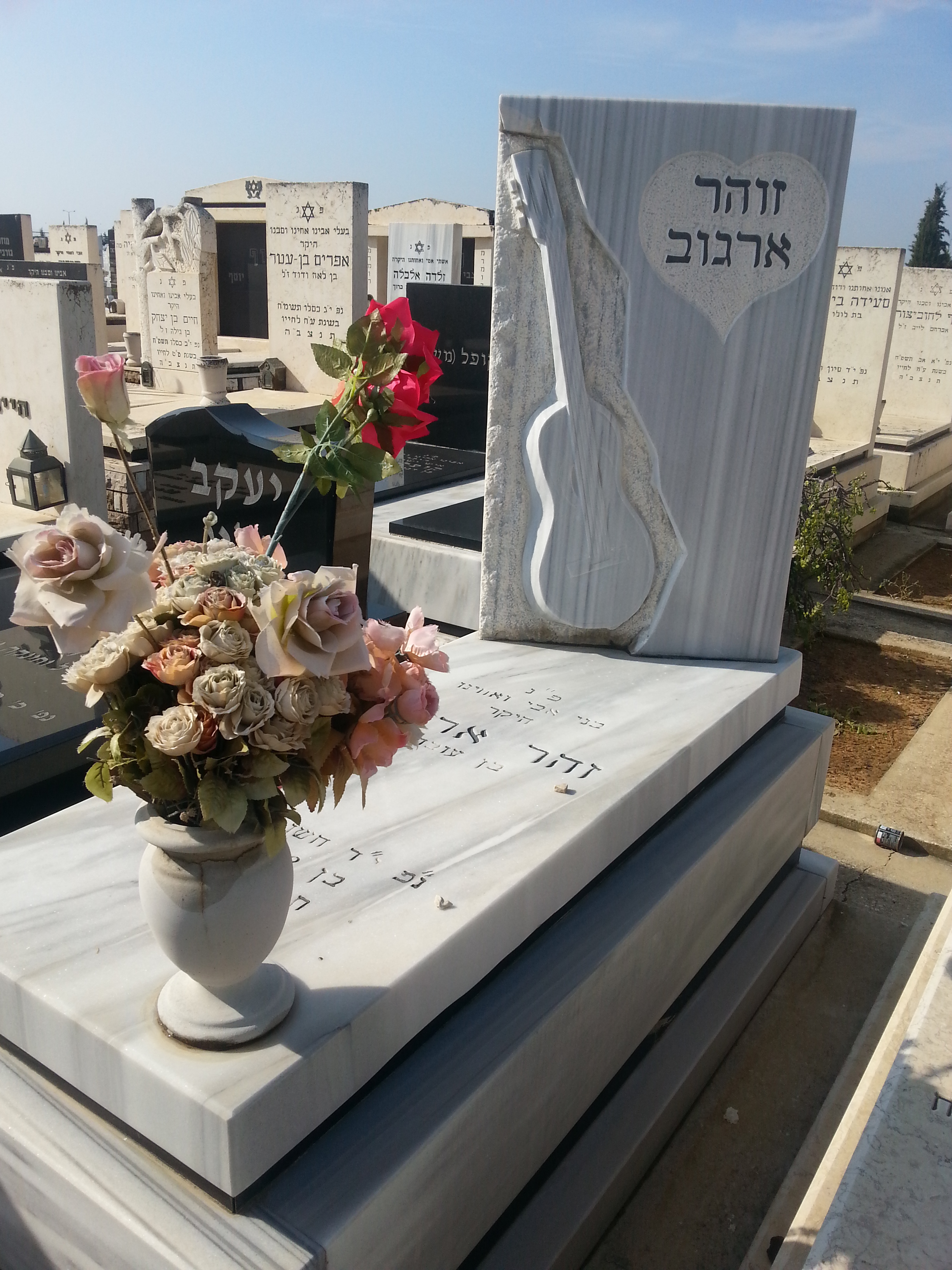|
Aharon Amram
Aharon Amram ( he, אהרן עמרם) (born 1939) is an Israeli singer, composer, poet and researcher of Yemenite Jewish origin. Life and career Amram was born in Sana'a, Yemen in 1939 to Romia and Shlomo Amram, a rabbi. In 1950 he immigrated to Israel as part of Operation Magic Carpet which was designed to bring Yemenite Jews to Israel, where he landed in the refugee camp of Rosh HaAyin. He was quickly singled out for his beautiful voice and started singing at weddings and events. With the encouragement of the Speaker of the Knesset Yisrael Yeshayahu he studied at the conservatory in Tel-Aviv where he was faced with the choice of focusing on either classical music or Yemenite music due to the difference in singing styles. Having chosen the latter, Amram began to record dozens of short recordings while continuing to perform. As he started getting recognition for his work, he toured in Europe in the early 1960s including a show at the Olympia in Paris and a filmed performance for t ... [...More Info...] [...Related Items...] OR: [Wikipedia] [Google] [Baidu] |
Yemenite Hebrew
Yemenite Hebrew ( ''ʿĪvrīṯ Tēmŏnīṯ''), also referred to as Temani Hebrew, is the pronunciation system for Hebrew traditionally used by Yemenite Jews. Yemenite Hebrew has been studied by language scholars, many of whom believe it to retain older phonetic and grammatical features lost elsewhere. Yemenite speakers of Hebrew have garnered considerable praise from language purists because of their use of grammatical features from classical Hebrew. Tunisian rabbi and scholar, Rabbi Meir Mazuz, once said of Yemenites that they are good grammarians. It is believed by some scholars that its phonology was heavily influenced by spoken Yemeni Arabic. Other scholars and rabbis, including Rabbi Yosef Qafih and Rabbi Abraham Isaac Kook, hold the view that Yemenite Hebrew was not influenced by Yemenite Arabic, as this type of Arabic was also spoken by Yemenite Jews and is distinct from the liturgical Hebrew and the conversational Hebrew of the communities. Among other things, Rabbi Qa ... [...More Info...] [...Related Items...] OR: [Wikipedia] [Google] [Baidu] |
Yemenite Jewish Poetry
Yemenite Jewish poetry, often referred to as " paraliturgical poetry" because of its religious nature, has been an integral part of Yemenite Jewish culture since time immemorial. The Jews of Yemen have preserved a well-defined singing arrangement which not only includes the very poetic creation itself, but also involves a vocal and dance performance, accompanied in certain villages outside Sana'a by drumming on an empty tin-can (''tanakeh'') or a copper tray. The Jews of Yemen, maintaining strict adherence to Talmudic and Maimonidean halakha, observed the gezeirah which prohibited playing musical instruments, and "instead of developing the playing of musical instruments, they perfected singing and rhythm." (For the modern Yemenite-Israeli musical phenomenon see Yemenite Jewish music.) This arrangement was integrated into the walks of life familiar to the Jews of Yemen. The texts used in the arrangement were put down in writing and later included in separate song collections (''d� ... [...More Info...] [...Related Items...] OR: [Wikipedia] [Google] [Baidu] |
Yemenite Jews
Yemenite Jews or Yemeni Jews or Teimanim (from ''Yehudei Teman''; ar, اليهود اليمنيون) are those Jews who live, or once lived, in Yemen, and their descendants maintaining their customs. Between June 1949 and September 1950, the overwhelming majority of Yemen's Jewish population immigrated to Israel in Operation Magic Carpet. After several waves of persecution throughout Yemen, the vast majority of Yemenite Jews now live in Israel, while smaller communities live in the United States and elsewhere. Only a handful remain in Yemen. The few remaining Jews experience intense, and at times violent, anti-Semitism on a daily basis. Yemenite Jews have a unique religious tradition that distinguishes them from Ashkenazi Jews, Sephardi Jews, and other Jewish groups. They have been described as "the most Jewish of all Jews" and "the ones who have preserved the Hebrew language the best". Yemenite Jews fall within the " Mizrahi" (eastern) category of Jews, though they diffe ... [...More Info...] [...Related Items...] OR: [Wikipedia] [Google] [Baidu] |
Shabbat
Shabbat (, , or ; he, שַׁבָּת, Šabbāṯ, , ) or the Sabbath (), also called Shabbos (, ) by Ashkenazim, is Judaism's day of rest on the seventh day of the week—i.e., Saturday. On this day, religious Jews remember the biblical stories describing the creation of the heaven and earth in six days and the redemption from slavery and The Exodus from Egypt, and look forward to a future Messianic Age. Since the Jewish religious calendar counts days from sunset to sunset, Shabbat begins in the evening of what on the civil calendar is Friday. Shabbat observance entails refraining from work activities, often with great rigor, and engaging in restful activities to honour the day. Judaism's traditional position is that the unbroken seventh-day Shabbat originated among the Jewish people, as their first and most sacred institution. Variations upon Shabbat are widespread in Judaism and, with adaptations, throughout the Abrahamic and many other religions. According to '' ... [...More Info...] [...Related Items...] OR: [Wikipedia] [Google] [Baidu] |
Yemeni Emigrants To Israel
Yemen (; ar, ٱلْيَمَن, al-Yaman), officially the Republic of Yemen,, ) is a country in Western Asia. It is situated on the southern end of the Arabian Peninsula, and borders Saudi Arabia to the north and Oman to the northeast and shares maritime borders with Eritrea, Djibouti, and Somalia. Yemen is the second-largest Arab sovereign state in the peninsula, occupying , with a coastline stretching about . Its constitutionally stated capital, and largest city, is Sanaa. As of 2021, Yemen has an estimated population of some 30.4 million. In ancient times, Yemen was the home of the Sabaeans, a trading state that included parts of modern-day Ethiopia and Eritrea. Later in 275 AD, the Himyarite Kingdom was influenced by Judaism. Christianity arrived in the fourth century. Islam spread quickly in the seventh century and Yemenite troops were crucial in the early Islamic conquests. Several dynasties emerged in the 9th to 16th centuries, such as the Rasulid dynasty. The country ... [...More Info...] [...Related Items...] OR: [Wikipedia] [Google] [Baidu] |
Living People
Related categories * :Year of birth missing (living people) / :Year of birth unknown * :Date of birth missing (living people) / :Date of birth unknown * :Place of birth missing (living people) / :Place of birth unknown * :Year of death missing / :Year of death unknown * :Date of death missing / :Date of death unknown * :Place of death missing / :Place of death unknown * :Missing middle or first names See also * :Dead people * :Template:L, which generates this category or death years, and birth year and sort keys. : {{DEFAULTSORT:Living people 21st-century people People by status ... [...More Info...] [...Related Items...] OR: [Wikipedia] [Google] [Baidu] |
1939 Births
This year also marks the start of the Second World War, the largest and deadliest conflict in human history. Events Below, the events of World War II have the "WWII" prefix. January * January 1 ** Third Reich *** Jews are forbidden to work with Germans. *** The Youth Protection Act was passed on April 30, 1938 and the Working Hours Regulations came into effect. *** The Jews name change decree has gone into effect. ** The rest of the world *** In Spain, it becomes a duty of all young women under 25 to complete compulsory work service for one year. *** First edition of the Vienna New Year's Concert. *** The company of technology and manufacturing scientific instruments Hewlett-Packard, was founded in a garage in Palo Alto, California, by William (Bill) Hewlett and David Packard. This garage is now considered the birthplace of Silicon Valley. *** Sydney, in Australia, records temperature of 45 ˚C, the highest record for the city. *** Philipp Etter took over ... [...More Info...] [...Related Items...] OR: [Wikipedia] [Google] [Baidu] |
21st-century Israeli Male Musicians
The 1st century was the century spanning AD 1 ( I) through AD 100 ( C) according to the Julian calendar. It is often written as the or to distinguish it from the 1st century BC (or BCE) which preceded it. The 1st century is considered part of the Classical era, epoch, or historical period. The 1st century also saw the appearance of Christianity. During this period, Europe, North Africa and the Near East fell under increasing domination by the Roman Empire, which continued expanding, most notably conquering Britain under the emperor Claudius (AD 43). The reforms introduced by Augustus during his long reign stabilized the empire after the turmoil of the previous century's civil wars. Later in the century the Julio-Claudian dynasty, which had been founded by Augustus, came to an end with the suicide of Nero in AD 68. There followed the famous Year of Four Emperors, a brief period of civil war and instability, which was finally brought to an end by Vespasian, ninth Roman emperor, ... [...More Info...] [...Related Items...] OR: [Wikipedia] [Google] [Baidu] |
Galbi (song)
"Galbi" (Hebrew: גלבי, Arabic: ) is an Arabic Musical poem by Yemenite Aharon Amram that was sung by Israeli Yemenite singer Ofra Haza and others. The 1988 remix of the song, taken from the album ''Shaday'', was issued as the follow-up to Haza's worldwide chart hit "Im Nin'Alu (Played in Full Remix)". History Both "Im Nin'Alu" and "Galbi" were originally recorded for the 1984 album '' Yemenite Songs'' (also known as ''Fifty Gates of Wisdom''), containing modern versions of traditional Yemeni Jewish songs, recorded with drum machines and synthesizers but still with comparatively traditional arrangements and instruments, including strings, woodwind and brass, as well as distinctive percussion like Yemeni tin and tambala. Remixes Contrary to popular belief, "Im Nin'Alu" was not the first track from the ''Yemenite Songs'' album to be remixed for the dancefloor - in fact it was the other way around. "Galbi" was the first remix to be issued in Israel in 1984 on the Hed Arzi labe ... [...More Info...] [...Related Items...] OR: [Wikipedia] [Google] [Baidu] |
Sana'a
Sanaa ( ar, صَنْعَاء, ' , Yemeni Arabic: ; Old South Arabian: 𐩮𐩬𐩲𐩥 ''Ṣnʿw''), also spelled Sana'a or Sana, is the capital and largest city in Yemen and the centre of Sanaa Governorate. The city is not part of the Governorate, but forms the separate administrative district of "ʾAmānat al-ʿĀṣima" (). Under the Yemeni constitution, Sanaa is the capital of the country, although the seat of the Yemeni government moved to Aden, the former capital of South Yemen in the aftermath of the Houthi occupation. Aden was declared as the temporary capital by President Abdrabbuh Mansur Hadi in March 2015. At an elevation of , Sanaa is one of the highest capital cities in the world and is next to the Sarawat Mountains of Jabal An-Nabi Shu'ayb and Jabal Tiyal, considered to be the highest mountains in the country and amongst the highest in the region. Sanaa has a population of approximately 3,937,500 (2012), making it Yemen's largest city. As of 2020, the greater San ... [...More Info...] [...Related Items...] OR: [Wikipedia] [Google] [Baidu] |
Zohar Argov
Zohar Argov ( he, זוהר ארגוב, born , Zohar Orkabi, July 16, 1955 – November 6, 1987) was an Israeli singer and a distinctive voice in the Mizrahi music scene. Argov is widely known in Israel as "The king of Mizrahi music". Biography Zohar Argov was born in Rishon LeZion, Israel, to Ovadia and Yona Orkabi, Jewish parents who immigrated from Yemen. He was the eldest of ten children. He displayed a talent for singing in childhood, and his classmates nicknamed him "nightingale". All his siblings also displayed an interest in music. As a result of Argov's disinterest in any aspect of school except music, which was exacerbated by his family's financial problems, he dropped out of school at age 14 to work at a construction company. In 1972, he married a neighbour, Bracha Tzabari, and a year later, she gave birth to their son Gili. Argov's father Ovadia, with whom he had had a stormy relationship over the latter's authoritarianism and alcoholism, died on the day of Gili's br ... [...More Info...] [...Related Items...] OR: [Wikipedia] [Google] [Baidu] |




.jpg)


